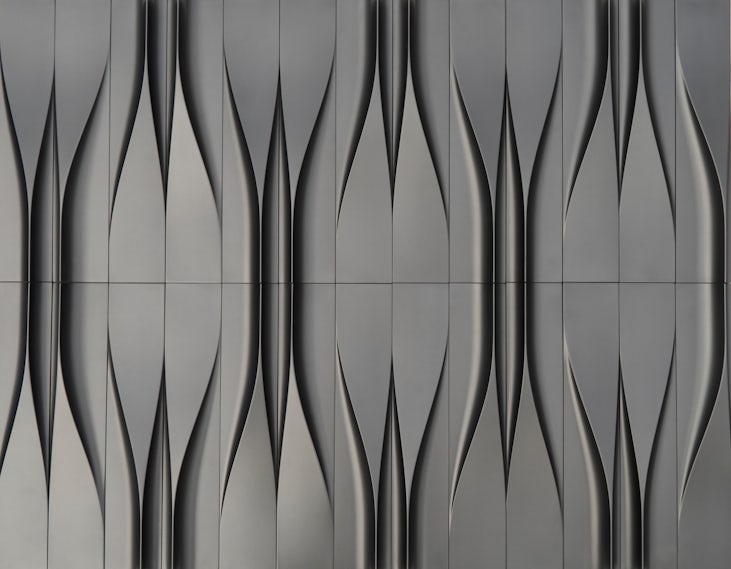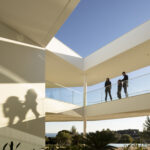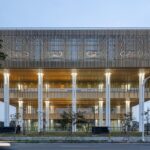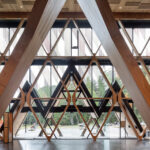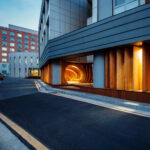One of the most beloved materials of many an architect, concrete is also a favorite from the interiors standpoint, too, whether poured for the floors or molded into decorative objects. So it comes as no surprise that the architectural, dimensional and sometimes intricate concrete tiles by Kaza Concrete would be a hit with the A&D community.

Following the formation of a distribution partnership with Kaza, American tile-maker Walker Zanger set out to discover what else could be rendered in the medium and in tile form. Together with Architectural Digest, the brands invited practicing architects and designers to enter the inaugural Walker Zanger Kaza Design Competition to create something that could — and will — go into production. And the winner is …

Aybars Asci, AIA, founder of Efficiency Lab for Architecture. His concept, Liquid Forms, is a contemporary sculptural design that resembles gentle ripples in water. It’s also modular, allowing for multiple pattern variations.

“The soft curvilinear Liquid Forms design has a tactile quality that suggests sensuousness and luxury,” describes Asci. Well-suited to hospitality or residential settings, but also any commercial space that calls for a sophisticated aesthetic and palette, his asymmetric design is being manufactured by Kaza exclusively for Walker Zanger in three colorways, one of which will be metallic.

“I really love the sinewy fluidity of the form and how it would dematerialize a wall with its unique play of light throughout the day into night,” stated Rafael de Cárdenas, a judge for the competition. “Though static, its surface suggests fluid animation.”
In addition to de Cárdenas, the judging panel for this competition included other celebrated architects and interior designers Victoria Hagan, Stephanie Goto, Ryan Korban, Nathan Turner and Jennifer Post.
More on Kaza Concrete:
